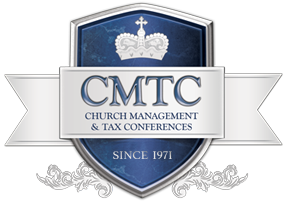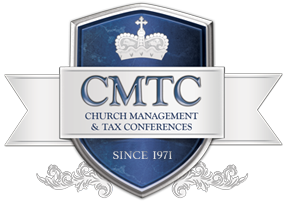You Must Become a Legal 501(c)(3) Now
As I travel across the nation teaching Church and Clergy Tax Seminars, I am continually amazed at Pastors, Church Leaders, and Bookkeepers who feel as if they are exempt from obtaining formal 501(c)(3) approval from the Internal Revenue Service. Some of these Pastors and Leaders feel as if it is unnecessary because they are under a denominational umbrella. Others feel it is unnecessary simply because they are a Church and they mistakenly think Churches are exempt from the requirements. Both of those objections are flawed and today I will answer both.
The Denominational Umbrella
While it is true that the Internal Revenue Service may never question an individual Church that is under the Denominational Umbrella, there are other concerns that should be addressed.
- Holes in the Umbrella
There are 13 denominations under IRS investigation. Some of these are considered to be major organizations. Once the IRS completes its investigation of Headquarters, what happens next?
If the Internal Revenue Service auditors uncover major concerns in the organizational Headquarters’ books the next step will be the audit of the individual Churches connected to that denomination. Unless the local Church has its own 501(c)(3) it will have no umbrella that can protect the donations made to it. If this be the case, there would be no protection for any donations made by members to assure those donations were tax deductible. The members then may be subject to audit and assessment of more taxes and penalties.
- IRS Agent Determination
According to the Federal Court Case of Massey vs. The Commissioner, the presiding Judge ruled that it does not matter what an IRS agent tells a taxpayer. The only thing that matters is what is written in the IRS Code.
According to the Federal Court Case of Jack Taylor vs. The Commissioner, the Judge ruled that any determination of the tax deduction allowance for a contribution was solely at the discretion of the IRS and its agents.
These two cases have become case law and should raise red flags for any Church and religious institution.
Churches that choose to come under the Denominational Umbrella and not receive their own (501)(c)(3), may be at risk of having donations denied as tax deductible. My reasoning for this conclusion is simple. The donations are made to the local Church and not to the Denominational Headquarters, nor are all the offerings collected sent to the Headquarters. The wrong IRS Agent could possibly deny deductions simply because he or she finds nothing in the IRS code to support those donations.
The Church Believes It Is Automatically Exempt
This misconception is dangerous for the local Church and its members.
Most Churches that do not file for their own 501(c)(3) do not because of one statement in section 508(c)(1)(a). This section does state that Churches do not have to APPLY for 501(c)(3) status. However, according to the Taylor vs. The Commissioner case, the Court ruled that section 508(c)(1)(a) only relieves Churches from applying for a favorable determination letter regarding their exempt status, but it does not relieve a Church from having to meet the requirements of section 501(c)(3).
Although it relieves the Church from applying for the favorable determination letter, that Letter of Determination is the “Proof Document” that allows all donations to the Church to be tax deductible. Remember, as stated in the previous section, the allowance of a tax deduction for any gift is solely at the discretion of the IRS. Jack Taylor’s Church did not have a Determination Letter and the Judge ruled that neither Mr. Taylor, nor the Church proved his organization was a Church (even though they were conducting regular worship services). None of Mr. Taylor’s donations (several thousands of dollars) were allowed and resulted in him paying more taxes, and penalties and interest.
How We Can Help
It is difficult and time consuming for a Church to attempt to process its own 501(c)(3) application. The reason for the difficulty is because of the immense amount of information that is required, including financial statements. If the Church hires an attorney, and accountant to process the paperwork, the Church will incur thousands of dollars in costs (one Church that came to us had already spent $4500.00 and as yet had any paperwork filed with the IRS).
Because of our 77 years of experience we are the Premier firm in America to handle this matter. Our staff of Attorneys and CPAs is dedicated only to our clients. We have streamlined the process making it more cost effective and faster for the Church or ministry. Our fee and turn-around time is only a small fraction of what others are assessing.
Do not allow donations to your Church or ministry to be open for possible IRS denial for tax-deductions. Become good stewards of God’s tithes and offerings.
Contact us now at (800) 344-0076 or drshaw@cmtc.org to begin the official 501(c)(3) application to protect your Church members’ donations.

